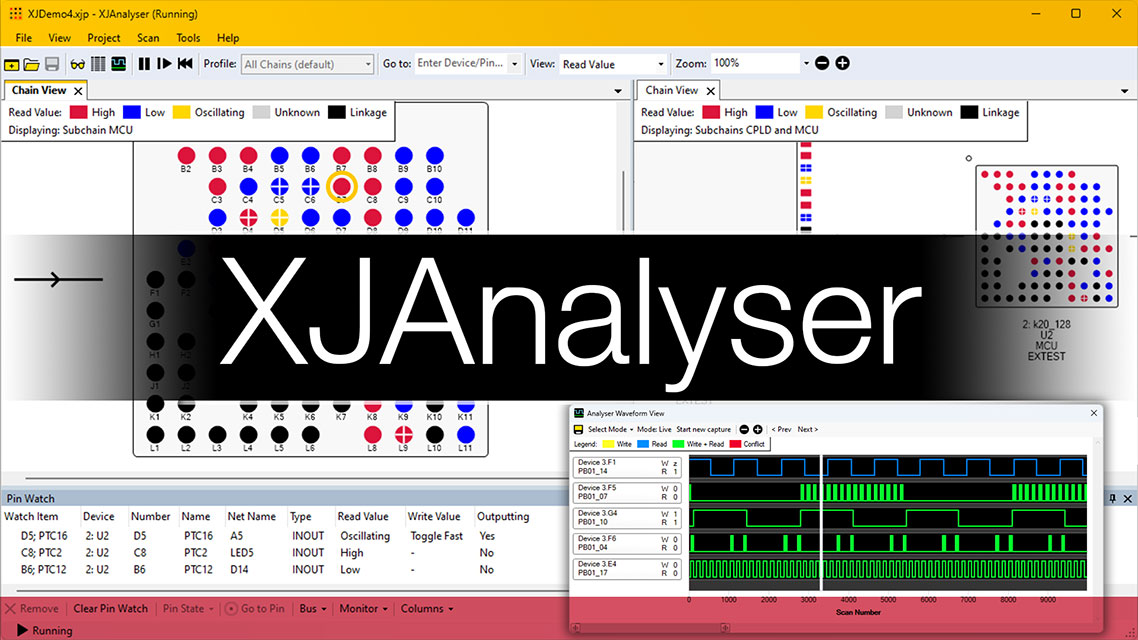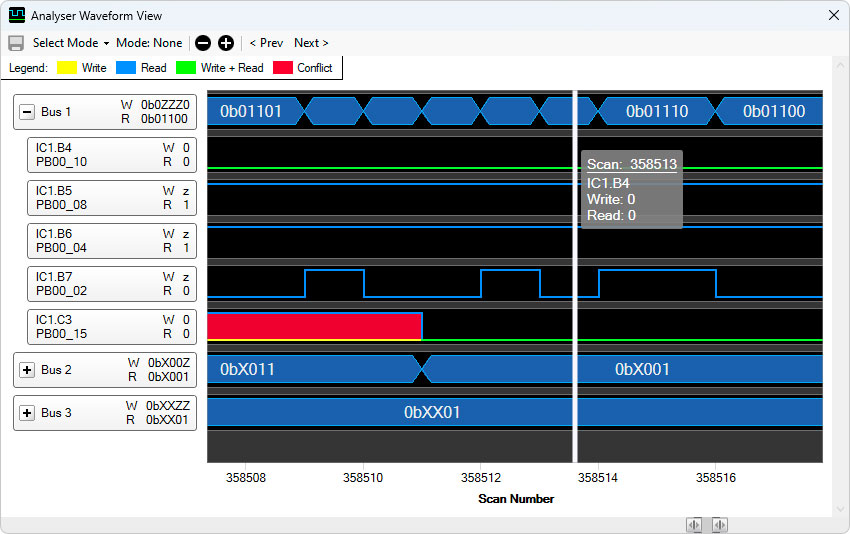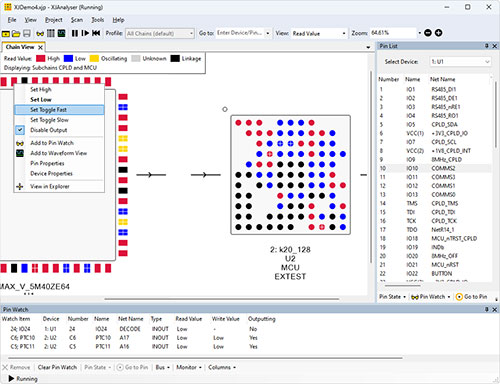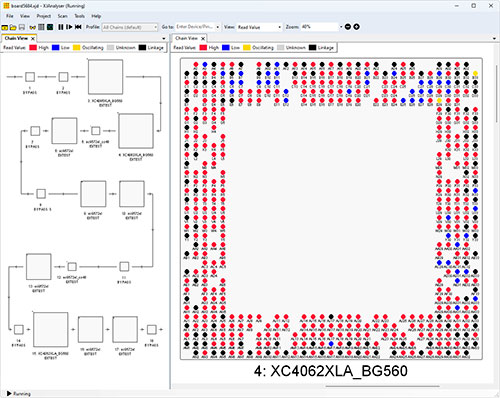
XJAnalyser with XJLink2
Real-time graphical board debugger
In stock

An easy to use way to get started using JTAG to find or debug problems with your assembled PCB. XJAnalyser will have you up and running in minutes, using an XJLink2 JTAG controller to connect to up to 4 JTAG chains in your circuit.
XJTAG’s standalone XJAnalyser application is a powerful tool for real-time circuit visualisation and debugging. It provides a graphical view of JTAG chains, giving you pin-by-pin control and visibility of both pin value (digital high or low) and output state (driving or set to high-impedance).
XJAnalyser offers an intuitive interface for setting output states and values, and reading input values from a circuit in near real time. The default view visualises devices with colour coding, but data can also be displayed in tables or in a logic analyser style view. In addition, it has the facility to run SVF and STAPL / JAM files.
The supplied XJLink2 test controller supports up to 4 JTAG chains, with configurable I/O voltages between 1.1 V and 3.3 V. It is attached to the PC via USB, and has a 20-way connector with configurable pin-out to make it easy to attach to your circuit.
Key benefits
Gives access to JTAG components in the circuit
Read and write access to pins on BGA and fine-pitch devices or where test points aren’t available
Ready to use within minutes
Connecting XJAnalyser to the JTAG chain is very simple
Quickly debug and verify manufacturing faults
Allows you to increase yields by quickly confirming test results or checking a fix.
Control and monitor the pins on JTAG devices
Pin values can be set high or low, or into slow or fast toggle, all at a click of the mouse. The pin colours then indicate their values in real time.
You can place pins in a ‘watch window’ to make it easy to see their changes amongst all of the pins around them on a device, or configure the watch window to automatically add any pins which change value in the circuit.
Buses can be built from pins in the watch window; you can then write a value to the bus to set all of those pins at once.

Visualise the pin states intuitively
View the devices in the JTAG chains graphically, with user-definable zoom levels. You can also split the screen and view different parts of the circuit at different magnifications.
Observe pin states by looking at a table of pins and values, or graphically with the colours on a representation of the JTAG devices showing you the current state of pins. Additionally, the Waveform View captures and displays the digital signal levels and transitions of JTAG chain data, showing you the state of selected pins over a period of time.
Detect and investigate specific conditions or events by using the triggering capabilities of the waveform view, which can greatly improve an engineering team’s ability to capture key information and identify intermittent faults.
Take control of the circuit
XJAnalyser can either perform continuous write-read JTAG cycles, giving instant feedback on signal changes, or it can iterate single cycles under user control, allowing manual changes between each cycle.
You can run SVF and STAPL / JAM files that apply to any sequence of devices in your circuit.
The Golden Board comparison feature can capture the values being driven onto the JTAG devices of a known good board. These values can then be used to identify differences between a board exhibiting unexpected behaviour and the reference board.
Features
Graphical device view
Easily understandable way to view many pins at once
Waveform View
Waveform view shows pin values over time in logic analyser style view
Pin Watch
Monitor specific pins or look for pins changing value
Drive values to the circuit
Set a pins or groups of pins high or low with just a click
Real time display
Set or read pin values across the circuit
Integration available
Use XJAnalyser features via API from other software using XJIntegration
Trace faults
Assists in tracing signals and in locating short circuit and open circuit faults
Program JTAG devices
Program devices by running SVF and STAPL files within XJAnalyser
No-netlist operation
Only requires BSDL files to get up and running
Golden Scan
Compare behaviour to a known-good board
Easy connection
XJLink2 supports up to 4 chains, flexible voltages, 10 kHz–166 MHz clock speed


